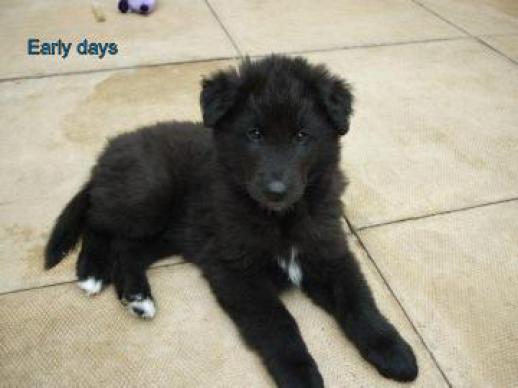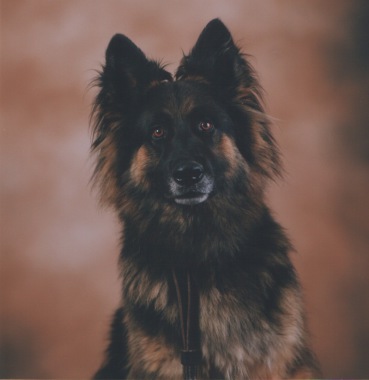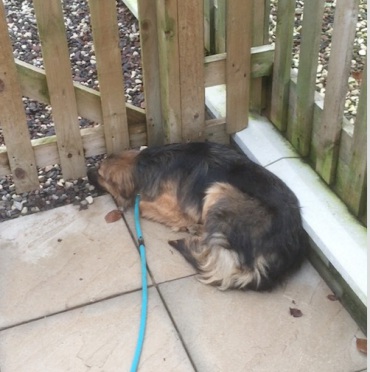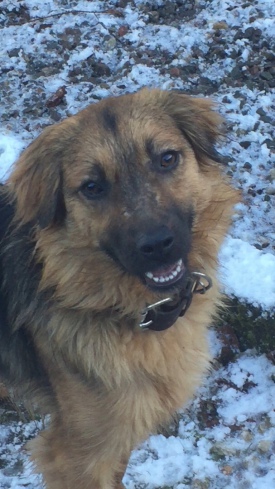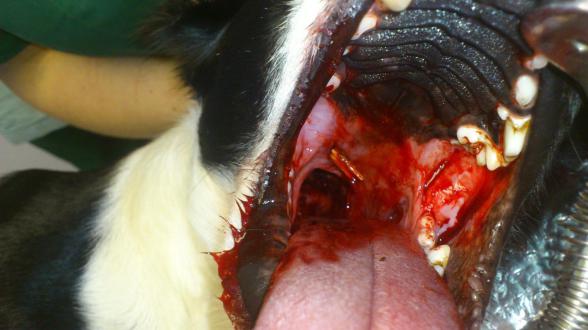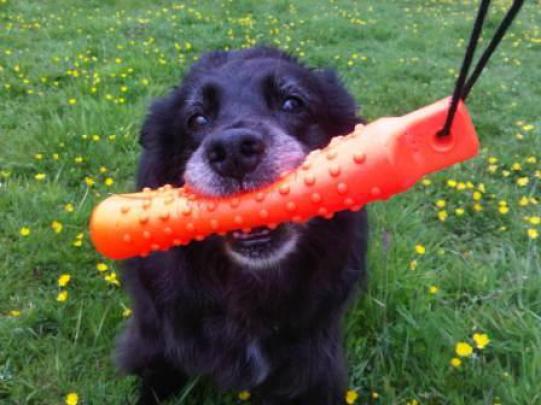
PRACTICAL ADVICE
AND
USEFUL TIPS
I have never had a dog before and I am thinking about getting one. Can you offer any advice?
A sensible approach at this stage would be to consult with an experienced Dog Trainer and attend some classes as an observer, this will give you some insight into what you are about to take on and you will be able to seek advice on how to pick your dog and help you avoid the many pitfalls that may lead to disappointment and heartbreak. It is a positive and informative way to prepare for your new arrival.
How old should my puppy be to
start training?
Whether you realise it or not, you started the day you brought your puppy home. The first 22 weeks form the most
important learning period of your dog's life. If you get things right during this time then you can look forward to a relatively easy transition into adulthood with your dog and if you wish, you can
continue training to the highest standards. For these reasons we advocate Formal Dog Training Classes commencing at 12 weeks of age or as soon thereafter once your puppy has received a complete
course of vaccinations.
We have taken on a three year
old rescue dog and he appears to be very aggressive towards other dogs and people who are strangers. Can you help?
Without a comprehensive assessment it is difficult to diagnose from where the problem emanates and therefore we
suggest a home visit to make the assessment and formulate a program to socialise your dog and enable you to control your dog and reduce the anxiety you and your dog are obviously
experiencing.
I have a nine month old Labrador and he is very boisterous and demands attention all the time, either by barking at me or biting my
hand or trouser leg. What can I do?
Without realising it, you have promoted him up the hierarchy and he believes he is the dominant member in your pack and from his perspective this gives him the right to demand anything he chooses. In Dog terms he is behaving quite naturally for the rank he currently holds in "HIS" pack. The way forward is to reduce his dominance and increase yours through a change in his accustomed lifestyle.
Do not blame yourself for this as it is a common problem and can be remedied by looking at things and behaviour from the dog's perspective and introducing some simple techniques and boundaries.
I have recently mated my two
year old German Shepherd and since the mating he seems to have gone through a personality change, becoming disobedient and very possessive over food and toys, sometimes aggressively so.
Why?
To remedy the problem you first need to understand how the dynamics of the relationship between you and your dog
has changed and why. We can only gain some understanding if we try to look at the situation from the dog's perspective. As a pack animal there are a number of instinctive natural drives which ensure
the survival of the individual and the species and one of these is the drive to procreate. Now, in the world of the canine, the hierarchical pack system deems that only the strongest and high ranking
members of the pack will mate. This ensures that a strong and healthy gene base forms the foundation of future generations. If therefore, we choose to put our dog to stud, it is hardly surprising
that the dog sees itself as a high ranking pack member and duly behaves as such by taking control of situations, becoming food and toy possessive and becoming territorially aggressive. Once you
understand these changes you can take a new approach with your dog to re-address the balance of power in your pack.
My dog is very nervous and barks continuously at any noise she hears and hides behind the furniture when visitors come in. Can I stop this behaviour?
Yes, by firstly identifying why she is so timid and then working on building her confidence,
desensitising her to noises and activities that cause anxiety and ensuring that she is properly socialised and familiarised with people, other dogs and everyday occurrences.
TOP TEN TIPS FOR TIMID DOGS
You must consider your dog's previous history and background when addressing timid or frightened behaviour and responses, it is not always easy to make the associated links between history and behaviour especially when working with Rescue dogs.
There are no hard and fast rules, strategies or techniques, it is very much a case of developing an empathic and patient approach and allowing your dog to come to terms with its new environment and family (Pack).
Below are some useful tips but remember, your dog is an individual and one technique cannot be a cover-all approach to all dogs, so be Flexible and Open-minded and above all Open-hearted.
- If there is more than one dog in your Pack, walk the dogs separately on occasion’s. More well-adjusted dogs, will take advantage and take the ‘lead’ and consequently emphasise the timid dog’s insecurity.
2. Feed your dogs separately.
FOOD ENCOURAGES BULLYING,
IN THE MORE DOMINANT DOG.
- When interacting (stroking/playing/petting) with your dog, come down to his/her level, but do so at least 1 metre away and offer first contact under your dog's jaw. Remember still hands are the kindest hands you can lay on your dog.
- Always encourage/allow your dog to come to you, never rush up to your dog, it may be perceived as a threat. In fact, always move slowly and calmly in the vicinity of a timid dog, always be patient, never show anger or frustration to a timid dog as this will create further anxiety and fear in your dog.
- NEVER corner your dog – a timid dog is more likely to bite in fear and defence.
- When your dog is timid or reluctant to walk out, try to feed your dog following a walk. If necessary in the beginning, put your dog on their lead, then encourage your dog to walk out of the door, taking the food with you and then feed as soon as you are outside whilst your dog is still on the lead, your dog will soon learn that being put on their lead and going for a walk is ultimately both rewarding and enjoyable.
- Avoid standing over your dog in a dominant fashion, remember by virtue of the fact we stand taller on two legs your dog may already perceive you in a dominant light. Leaning over a timid dog only reinforces the dog's fears. This should also be avoided when handling an already timid/submissive dog.
- Sit on a chair in close proximity to your dog in the house, garden or kennel area. Holding a handful of treats allow your dog time to come to terms with your presence and energy. Say less, Do more and Be calm. When your dog starts to relax they will start to use their nose and be attracted to investigate you and the treats. Once your dog is by your side offer the treat from the palm of your hand, offer further treats then gently stroke the side of their neck and chest and under their jaw line. At this early stage avoid areas your dog perceives as vulnerable. e.g. EARS, EYES, TOP OF THE SHOULDERS, SIDES, BELLY, HIND-QUARTERS AND TAIL; only move on to these areas once you gain your dog’s trust.
- NEVER raise your hand to your dog, remember their perception is from a much lower level, so lower your carriage and your energy to approach at the appropriate level, with a kind open hand.
- Always avoid startling your dog, if approaching from behind or the side, or when your dog is sleeping, then call your dog’s name to let him know you are approaching.
"Force, no matter how concealed, begets resistance" Lakota quote.
My dog seems intent on digging up my garden bulbs and eating them, is this dangerous?
Yes, this can be very dangerous to your dog as many bulbs and plants are poisonous to our dogs, as are many other household products.
There are Comprehensive lists available on the internet, of poisonous plants, foods and substances which dogs are susceptable to and it is worth researching the subject via the internet or through consultation with your Veterinary Practitioner.
It is advisable to monitor your dog's behaviour in relation to digging and consuming plants and train your dog to leave plants alone or create safe areas where the dog does not have access to plants.
In the event of witnessing your dog eating plants or any other poisonous substances, or if you believe it to have eaten plant matter and you notice your dog becoming drowsy, hyperactive, frothing at the mouth or siezing, contact your Vet immediately.
It is wise to take samples of the plant and if your dog has been vomiting, samples of the vomit. Equally, if your dog is having abnormal bowel motions, also take a sample of the faeces to your Vet.
Bear in mind though that some toxins will not result in obvious symptoms, as a rule if you have seen your dog eating a plant and you dont know whether it is poisonous or not you should always err on the side of caution and safety by consulting your Veterinary Practitioner.
FOODS AND SUBSTANCES DANGEROUS TO YOUR DOGS
There are numerous foods and substances which are harmful to your dog and in some circumstances can be fatal, below are just some of the most common and toxic.
- Avacado.
- Caffeine (Tea, Coffee, Cocoa Drinking Chocolate).
- Dark Chocolate, highly toxic.
- Grapes/raisins again very toxic.
- Alcohol
- Salt
- Uncooked dough,bread/yeast
- Xylitol (a sweetener) is deadly toxic to dogs.
- Garlic, onions, chives, consumed in quantity may lead to anaemia and require a blood transfusion.
- Seeds from apples, cherries, apricots, peaches and plums, these seeds contain cyanide, if your dog chews any of these seeds it may prove fatal. Symptoms include difficulty in breathing and eventually convulsions. The colour of the dog's gums can be a useful indicator, the gums become very red because the body is being starved of oxygen.
- This list is by no means exhaustive, as there are many other substances and plants which can be harmful, however the above are very common.
MEDICATING OUR DOGS
Unfortunately many of us will have health issues with our puppies and dogs but the upside is that there are a great many excellent Veterinary practices out there and you should make sure you build a friendly and working relationship with your Vet and when problems present, consult your Vet sooner rather than later when symptoms have become more serious.
There may be a temptation to self treat and medicate with human medications for what are percieved as minor problems or when trying reduce costs.
PLEASE DO NOT MEDICATE WITH HUMAN MEDICINES.
Unless advised by or prescribed by your Vet, Human Medicines and drugs can seriously harm your dog and may prove fatal in worse cases.
-----------------------------------------------------------------------
My dog is in season can I bring her to training?
Yes of course you can, our training classes are outdoors and we try to create as natural environment as possible for both the dog and the handler. If you have an intact bitch, then Seasons are going to be a regular occurrence and dealing with that can be difficult if you wish to exercise your dog in public, so learning how to deal with that is an important element of you and your dog's development. Equally, those people who attend classes with male dogs need to learn how to control their dogs when a bitch in season is present.
------------------------------------------------------------------------------------------------
DOGS AND THE LAW
On this site we promote responsible dog ownership and that means understanding the Law affecting how we manage and handle our dogs on a day to day basis.
What are the legal requirements in respect of our dogs?
What happens if we fail to fulfil those requirements?
What happens if we lose control of our dogs and injury or damage occurs to a third party or their property?
What happens if our dog worries Livestock?
We have briefly laid out below the law relating to Microchipping, Collars and Tags, but if you are experiencing more serious legal issues with regard to your dog we advise you seek Expert Legal Advice.
Wheldon Law, are Lawyers who specialise in Dog Law and below is a Link relating to the Dangerous Dogs Act.
https://wheldonlaw.co.uk/dog-law-solicitors/dogs-dangerously-out-of-control/
MICROCHIPPING
Under The Microchipping of Dogs (Scotland) Regulations 2016
All dogs must be Microchipped by the age of eight weeks of age. It is the responsibility of the owner to ensure your dog is chipped and that the chip is registered with one of the recognised Databases.
Microchipping means you and your dog can be more easily re-united, should your dog be lost.
Microchipping also means loose and out of control aggressive dogs can be identified, as can their owners.
Finally, the owners who abuse their dogs can be identified.
It is an Offence not to Microchip your Dog and you can be liable to a fine of £500.00.
COLLAR AND NAME TAG
Under Control of Dogs Order 1992
All dogs in a Public place must wear a collar with the name and address including Postcode of the owner engraved or written on the collar or engraved or written on an attached Tag.
It is optional to include a telephone number, but advisable to enable a faster reunion with your pet.
It is not advisable to put your dog’s name on the Tag as this may make it easier for someone to use your dogs name to steal it and then give credibility when trying to sell it on.
Remember You could be fined up to £5,000 if your dog does not wear identification.
-------------------------------------------------------------------
"TOYS" THAT ARE NOT TOYS
Many people without realising it endanger their dogs by allowing their dogs and even encouraging them to play with items which are not appropriate toys.
Examples are:
STICKS are top of the list, these can cause serious injury to your dog, discourage your dog from picking up sticks or carrying them and NEVER throw sticks for your dog.
PLASTIC BOTTLES again your dog can sustain serious cuts and internal damage from chewing on any plastic items.
GOLF BALLS can be swallowed whole and cause blockages and if they are chewed to the core there are toxic elements within golf balls.
SQUASH BALLS and other small soft balls, even tennis balls can be swallowed by some dogs and block the throat or the gut.
There are many other items that are regularly given to dogs as toys and many of these or not approriate or safe for your dog to play with, so think carefully before you give a "TOY" to your dog.
Never leave your dog to play with toys on it's own, you should always monitor your dogs activities with toys, to be on the safe side.
